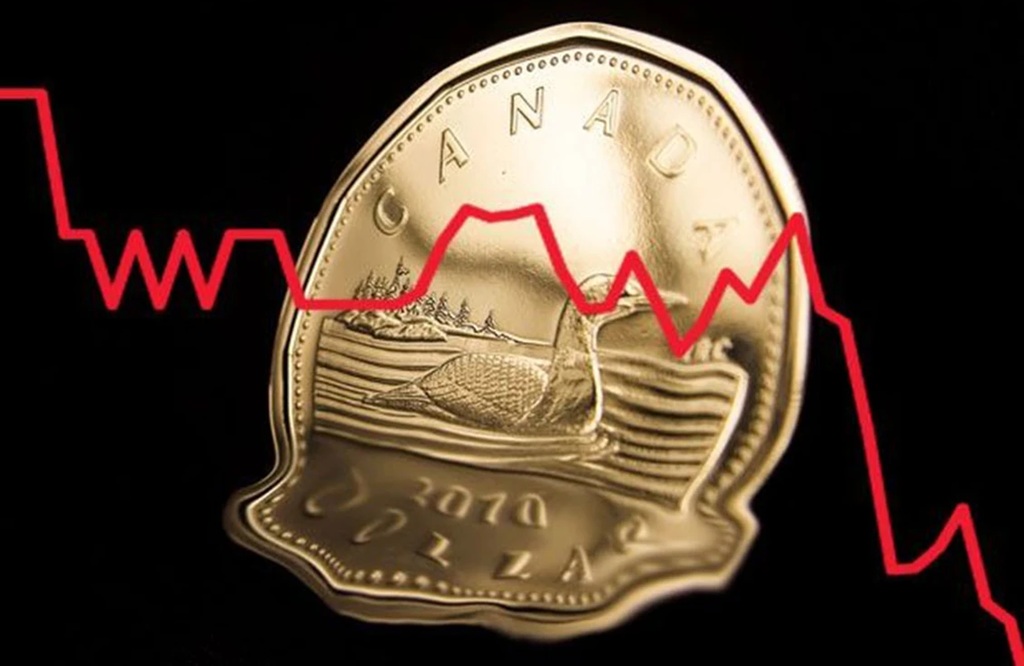The Canadian Dollar (CAD) dropped against the Greenback on Monday after the Liberals passed their controversial GST holiday, which added $6.3 billion to Canada’s National Debt.
The Canadian dollar has slipped to its lowest level in five years. Outside of the depths of the COVID pandemic, the loonie is weaker than it’s been since 2015. After trading from 1.3987 to 1.4089, the loonie traded 0.3% lower at C$1.4044 to the greenback, or 71.2 U.S. cents.
The 10-year bond yields of the Canadian government decreased by 1.4 basis points to 3.072%. On comparable benchmark debt issued by the United States government, the yield remained constant at 4.1936%.
The Canadian dollar has been consistently declining over the past few months, a decline many economists and currency experts have attributed to the country’s increasing inflation and Trudeau’s uncapped spending.
“I would not be surprised if we were to fall below 70 cents [US] and potentially as low as 68 cents at some point,” stated Karl Schamotta, the chief market strategist of Corpay, a financial payments company.
Canadian Dollar Decline
Since the summer of 2021, the Canadian dollar has been in a protracted, gradual decline. Nevertheless, the U.S. dollar has experienced a significant increase in value this month due to Donald Trump’s re-election victory.
The American dollar gained ground on the currency of nearly every industrialized country globally as he has pledged to implement tax cuts, deregulation, and comprehensive tariffs on all U.S. imports.
Canada exports approximately 75% of its goods to the United States, which has not precisely bolstered the Canadian dollar.
When the loonie falls, the Canadian economy suffers far-reaching consequences. Imports become more costly, but exporters who receive payment in U.S. dollars generate more revenue.
According to Douglas Porter, the chief economist at the Bank of Montreal, Canadians were already experiencing the effects of elevated financing costs and escalating prices for nearly all goods and services. He asserts that the cost of nearly all imports from the United States is increasing.
“It almost invariably results in increased petrol prices.” “It can directly affect food prices, as a significant portion of the food we consume is either imported or must compete on a global scale,” stated Porter.
Trudeau’s Spending
The domestic sector in Canada is experiencing an increase in borrowing costs, negatively impacting its leverage. Under Trudeau’s leadership, we are experiencing low productivity, feeble business investment, and soft commodity prices.
“People tend to see the currency value as a sort of national virility symbol,” according to him. Therefore, they will experience enthusiasm when the currency is at its highest and disappointment at its lowest.
Porter also contends that the Canadian dollar’s depreciation adversely affects the overall health of the Canadian economy.
He attributes the responsibility for this to Trudeau, who, according to him, overspent, printed an excessive amount of money, and consequently undermined the Canadian economy.
“The really sad thing is, for me and you and the rest of Canadian citizens, our standard of living has dropped 35 to 40 per cent versus the United States in the last eight years,” he pointed out.
That is merely a minor example of a low dollar’s influence on the perceptions of the economy and the politicians that many Canadians attribute to its difficulties.








